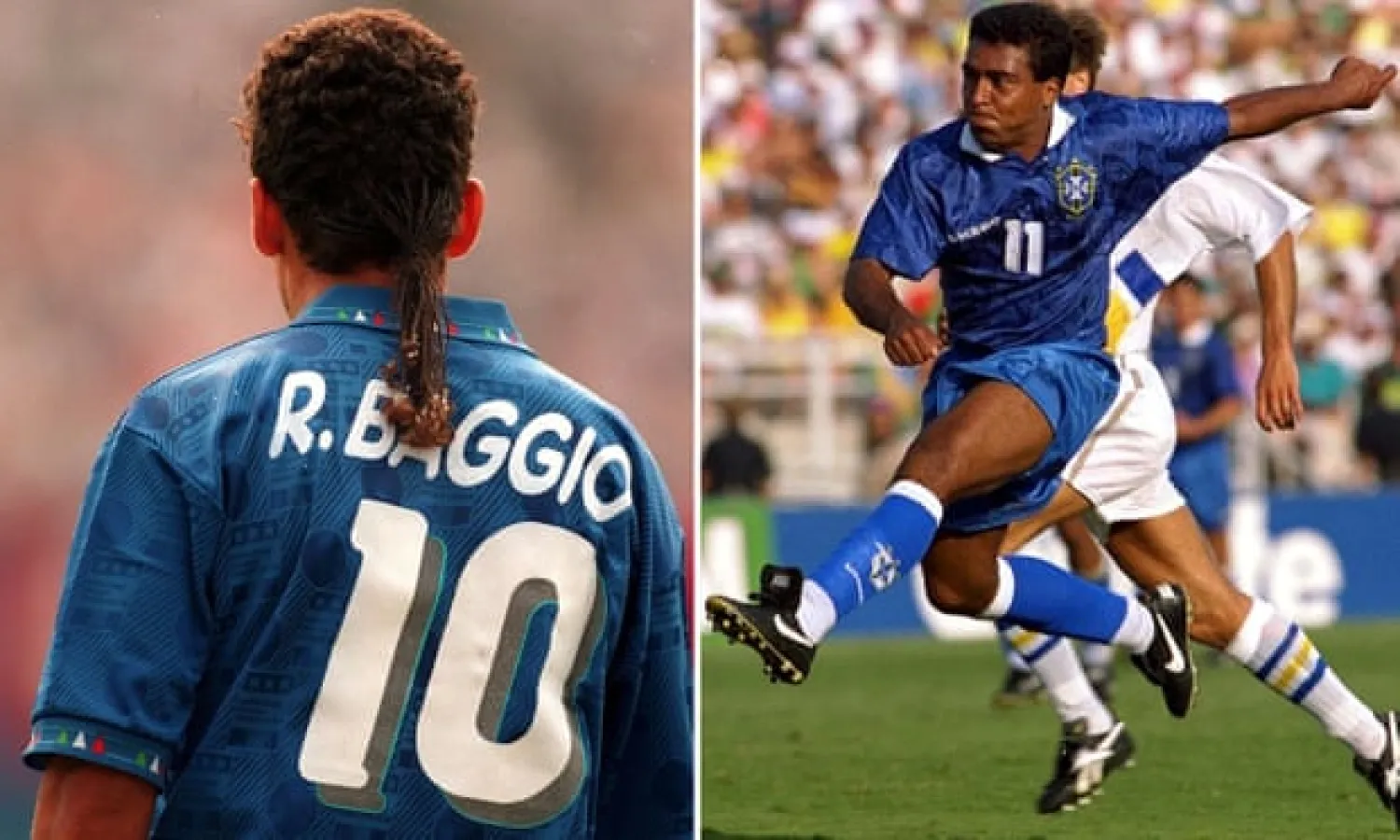A quarter of a century ago on Saturday millions of people all over the planet stopped what they might normally be doing to watch the World Cup semi-finals. Both games were played on the same day. First up Italy v Bulgaria at the Giants Stadium, New Jersey. Roberto Baggio was one of those players blessed with a style and personality that always felt singular. He arrived at USA 94 as the reigning World Player of the Year, was at the peak of his powers, and had elevated himself from an underwhelming group stage to inspire his nation through the knockouts with goal after important goal.
Bulgaria were a team full of cult heroes, one of whom was bald and brilliant; another looked like a werewolf, and then there was the maverick Hristo Stoichkov. But it was Baggio who stole the day. He played through the pain of a damaged hamstring and scored both Italy’s goals with typical balance, imagination and precision. “Incredible!” yelled John Motson. “Just look at this!” More of Baggio later.
The second semi-final was at the Rose Bowl in Pasadena and pitched one of the surprises of the tournament, an excellent Sweden team, against the mastery of Brazil led by a strike force of Romário and Bebeto (he of the rocking baby celebration), who pulled their team to the final.
Meanwhile, a germ of an idea that had formed in the mind of a couple of film directors from Germany and Argentina was coming to fruition. They wanted to portray this concept that people in diverse circumstances all around the world could be captivated by one moment through the medium of live television. They organised for 40 film crews to film fans in different countries watching the final. The Final Kick proved to be a brilliant documentary that was both of and ahead of its time. It flits not just between gatherings in an Italian bar or a Brazilian square but a harem in Cameroon where the chief is being fanned as he watches, a factory in Iran where the workers all clock off to watch a small screen, a monastery in the Czech Republic where an old telly is wheeled out of a cupboard for the monks to observe.
What the film captures so well is the tentacles of the appeal of the World Cup, and USA 94 was a significant milestone because it was in many ways the first modern tournament. It was the first time Fifa sought to take the prize of hosting outside the traditional football environments of Europe and Latin America. In 1994 there was no professional league in America. Since then, the World Cup has moved on other emerging markets, to Asia, Africa and now heads to the Middle East. It was a major turning point in terms of football’s mad dash towards globalisation, attracting mass interest and evolving as a cultural phenomenon.
Another example of the change in how events are consumed was witnessed during the tournament as the chase for OJ Simpson’s white bronco showed the power of a live-televised international rolling news story.
The 1994 World Cup was supposed to be a game changer for growing the game in the USA. A year previously MLS was founded as part of the bid to host the tournament. It was not actually up and running, though, until 1996. Did America fall in love with football enough during USA 94 to kick start a revolution? It was more of a slow burn. But today MLS is increasingly popular.
Colombia’s Andrés Escobar scores an own goal at USA 94. He was murdered in Medellín not long after. Photograph: Romeo Gacad/AFP/Getty Images
As giant European clubs full of multinational squads owned by foreign investors head off for pre-season tours to meet their global fanbase, roots can be traced back to the summer of 94. There were some memorable football moments that have lasted the test of time, from the Republic of Ireland beating Italy in front of a massive, raucous crowd at Giants Stadium to Saeed al-Owairan’s virtuoso run for Saudi Arabia against Belgium, from Diego Maradona’s crazed goal celebration and subsequent expulsion from the World Cup to the tragedy of Andrés Escobar, the Colombian defender murdered back in Medellín shortly after scoring an own goal.
And so, come 17 July, the watching world switched and zoomed in on Brazil v Italy. A heavyweight final. Perhaps the difference could be distilled by the fact Brazil expected of Brazil whereas Italy expected of Baggio.
They slugged it out until penalties. On this supersized stage Brazil kept their nerves while Italy wilted. That paragon of defensive excellence Franco Baresi missed, followed by European Cup final goalscorer Daniele Massaro. But it was the sight of Baggio lifting the ball over the bar that broke Italian hearts most. For he had been so heroic and had created the impression to make people believe he would win his country the World Cup – not quite on his own but mostly by virtue of his own will and wonders. To this day, everywhere where football is played, where a kid playing grassroots ends up bawling that he or she has missed the defining penalty in a shootout, adults try to console by reeling off the story of how the greatest player of his time did that at a World Cup final.
After Diana Ross’s showbiz missed penalty opened the tournament, the human drama of Baggio’s brought it to an emotional close. Over and out. Still, after these years, and for more to come, the memories endure.
The Guardian Sport









